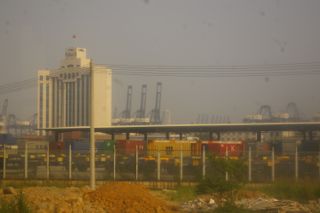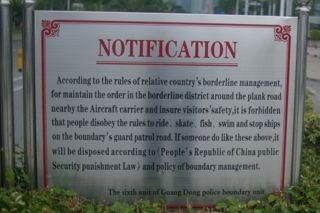We are developing the social individualist meta-context for the future. From the very serious to the extremely frivolous... lets see what is on the mind of the Samizdata people.
Samizdata, derived from Samizdat /n. - a system of clandestine publication of banned literature in the USSR [Russ.,= self-publishing house]
|
Here is the headline:
EU digital exclusion is ‘unacceptable’.
The clear implication of the quotes in that headline is that whereas the person being reported doing the talking indeed said “unacceptable”, that doesn’t mean that the word makes much sense, and in fact it is probably rather ridiculous. Quite so.
But to me the word “exclusion” is at least as much deserving of sneer quotes.
I do not have a car, a smart phone, a garden, a hi-fi system that would enable me to get full sonic value from the quite numerous classical SACDs that I have acquired over the years, a cat, a Kindle, a wife, an exercise bike, an actual bike, any paintings on my walls, a Spurs season ticket (even though I like it when Spurs do well), a snooker table, a Bible (I lent mine to someone and never got it back), a blender (I did have one but didn’t use it much and didn’t much like it when I did so I sold it to a friend), a yacht, a space exploration company, or a collection of ornamental hippos. Just yesterday, I made the arrangements to get rid of my photocopier. I do have a personal blog, and also write for an impersonal blog (this one), but I use neither Twitter nor Facebook. Of none of these various things that I don’t have or don’t use does it make sense to say that I am “excluded” from them. I merely choose not to have or use these things, or, in the case of the rather expensive or inconvenient ones, I am put off by the money it would cost to buy or to accommodate them, and the effort that would be involved in acquiring the money to pay for such transformed personal arrangements. (I would really like a cat, but that would mean me getting a different home.)
Martha Lane Fox says that lots of EU citizens not being connected to the internet is “unacceptable”. But instead of “not being connected”, she says “excluded”.
Speaking to The Telegraph, Lane Fox described the gap as “terrifying”.
More quotation marks, signifying more ridiculousness. Evidently Martha Lane Fox is a women who is easily frightened. What on earth is so “terrifying” about people not using the internet? Not so long ago, nobody used the internet, because there was no internet. Life went on.
Martha Lane Fox is apparently something called the “UK Digital Champion“. More sneer quotes there, this time from me. She was appointed this by Gordon Brown, and the current government carried on with this stupid arrangement. Should we perhaps start a series here, called something like: Public sector jobs that are stupid even by the usual standards of the public sector.
It all very much reminds me of this excellent posting here not long ago by Rob Fisher, in which he said, among various other wise things:
I imagine that libertarians are very much in the habit of questioning the deeper meaning of words.
This libertarian certainly is. The deeper meaning that Martha Lane Fox is in this case suffering from, and spreading, is the notion that Things Only Happen Because They Are Forced To Happen. I don’t have a cat or a Kindle, and that must mean that someone or something or some combination of someones and somethings must have forced me not to have a cat or a Kindle, just as if a gun had been pointing at me. Therefore, if “we” (another portentously wrongheaded word) think that cats and Kindles are good (as is many ways they are good, especially cats) it would be good also if “we” were to change the forces now forcing themselves upon me, and force me instead to have a cat and a Kindle. No more force would be involved. The forces in play would merely have been rearranged a little.
I do not describe such ideas as “unacceptable”. The title of this posting is ironic, despite its lack of sneer quotes. I must accept that many stupid people, such as Martha Lane Fox, are in the grip of these ideas, partly because of various words that rattle about in their heads for which they know no better alternatives, even if they might like to, and that as a result I and many others are subjected to force in circumstance where we ought not to be. But just as I choose not have a cat, so too I also choose not to think in this silly way myself.
Why don’t [union leaders] be selective and call out only those members who can cause damage to the government? There are places in the public sector that could go on strike for years and it would make little difference.”
– Letter in the New Statesman, 12 December 2011
Assuming the unions were to agree with that—which I suspect they dare not, and is indeed one strategic reason why one-day strikes are preferred—in what places in the public sector would staff striking for a significant period damage the government more than the unions? Maybe there are some. But it is hard to think of any.
Without free, self-respecting, and autonomous citizens there can be no free and independent nations. Without internal peace, that is, peace among citizens and between the citizens and the state, there can be no guarantee of external peace
– Vaclav Havel, tireless fighter against communism and sundry other human absurdities, has died. Ave atque vale.
Just in case you missed it, the last of these Frank Jisms is this:
This morning I started work on my next book for HarperCollins. Thanks to the sales of Obama: The Greatest President in the History of Everything, I was asked to write another book. This one will be on my solutions for all the problems facing America. Hopefully it will start a movement when it comes out with me as leader.
Earlier in the same posting Frank J quotes (admiringly) from and links to a piece (by him) about how, if cars were invented only now instead of when they were invented, we wouldn’t be allowed to drive them. Funny, and probably true.
It’s been pretty quiet here today, and all the things I’m am personally working on need more working on before they’re ready. But, if it’s true that a picture is worth a thousand words, well, here are a thousand words:
I found this at the top of a piece by Daniel Hannan about how Britain might just be being pushed out of EUrope and back into the Anglosphere.
I won’t be holding my breath, but I have long thought this to be an attractive idea.
USA cricket captain Steve Massiah has been arrested, and then had his travelling restricted. Why?
According to the arrest warrant, a copy of which is with ESPNcricinfo, Massiah and two other men conspired “to execute a scheme and artifice to defraud a financial institution”, listed as Countrywide Home Loans, “and to obtain moneys, funds, credits, assets, securities, or other property owned by and under the custody and control of such financial institution, by means of materially false and fraudulent pretenses, representations and promises.”
Quite right. People can’t be allowed to swindle financial institutions by means of materially false and fraudulent pretenses, representations and promises. To be allowed to behave like that, you should be running a financial institution yourself.
Immigrants are incoming assets … in a global economy, their labour is vital both to tackle severe skills shortages and to fill long-term vacancies. Immigrants are not taking jobs that British workers could fill, but jobs which British workers are unable or unwilling to do … the idea that immigration is an intolerable burden on the taxpayer and the welfare state is baloney. Immigrants give far more than they take. It is estimated that they make a net contribution to the economy of £2.5bn …
– House of Commons Speaker John Bercow in an article in the Independent in 2005, quoted by Henry Oliver today in Adam Smith Institute’s Pin Factory Blog.
Since Detlev Schlichter is discussed frequently around here, I thought it might be interesting to write a summary of some of the arguments from his book, Paper Money Collapse. Of course I am summarising my understanding of the arguments, so caveats about my fallibility apply; errors and omissions are mine.
He begins with a description of money. It is the medium of exchange. It needs to be something people agree on. Ideally there will be a fixed supply which is infinitely divisible. Precious metals fit the bill. Schlichter distinguishes between exchange value and use value. It is possible to use gold for jewelery and electronic components, so it has use value. But as soon as it is used as the medium of exchange it is the exchange value that dominates. Money has value because it can be exchanged for goods and services.
When people say they want more money, what they usually mean is that they want more goods and services. Nevertheless there is a demand for money as a store of readiness to exchange, in preparation for near-future purchases or unexpected needs. Within the limits of his means, a person can hold exactly the money he wants at any time. If he wants more money, he stops buying stuff and perhaps starts selling it. If he wants less money, he buys goods and services.
If demand for money falls, then more people want to buy goods and services, so prices go up and the purchasing power of a unit of money goes down. This continues until the reduced purchasing power of money causes people to want more money. If the demand for money increases, then more people want to sell goods and services, so prices go down and the purchasing power of a unit of money goes up. This continues until the demand for money is met. In this way, the purchasing power of money changes almost instantly, so the demand for money is met almost instantly. There is no need to create money to meet the demand for money.
Does this cause prices to be volatile? Perhaps, but Schlichter argues that it is impossible for a central authority to control the supply of money quickly enough to counter changes in demand for it. The only way they can measure these changes is by observing prices. By the time the price has changed so that it can be observed, it is too late. He also points to empirical evidence that suggests that prices are more volatile when central banks control the supply of money. → Continue reading: Summarising Schlichter
“Every day, the New York Times carries a motto in a box on its front page. ‘All the News That’s Fit to Print,’ it says. It’s been saying it for decades, day in and day out. I imagine most readers of the canonical sheet have long ceased to notice this bannered and flaunted symbol of its mental furniture. I myself check every day to make sure that the bright, smug, pompous, idiotic claim is still there. Then I check to make sure that it still irritates me. If I can still exclaim, under my breath, why do they insult me and what do they take me for and what the hell is it supposed to mean unless it’s as obviously complacent and conceited and censorious as it seems to be, then at least I know I still have a pulse. You may wish to choose a more rigorous mental workout but I credit this daily infusion of annoyance with extending my lifespan.”
Unfortunately, not even the Gray Lady was able to extend the lifespan of this essayist and controversialist beyond his age of 62. Farewell, Hitch.
A few minutes back I was glancing through Chinese trade statistics, in an attempt to put together the hopefully reasonably detailed post on what is going on in China that Brian has been nagging me to write.
With respect to Europe, the stat that pops out is that Germany runs a significant trade surplus with China, but that the eurozone as a whole and even more the EU as a whole runs a large deficit. Trade patterns with China are responsible for part of the immense stresses that now exist on the €uro. The German surplus puts upward pressure on the currency at the same time that the southern deficits put strong downwards pressure on it.
One thing that comes up is the “Hong Kong Problem” in the statistics. Many containers of Chinese exports from the factories of Shenzhen and Dongguan are carried over the border into Hong Kong, and are then shipped from the port of Hong Kong. Others are carried to the port of Shenzhen and then exported from China directly. Which port is chosen determines whether the export shows up in China’s trade surplus with America or whether it shows up in Hong Kong’s trade surplus with America. It is not difficult to simply consolidate the numbers, but this is not always done, and figures are sometimes misleading because of this. The two ports of Hong Kong and Shenzhen are only a few miles away from each other, and are at present third and fourth in the list of busiest container ports in the world, but would be the busiest by far if counted together. I had seen the port of Hong Kong many times prior to my last visit to the area in 2008, but I was curious about the port of Shenzhen, so I visited the Yantian district of Shenzhen.
After I wandered down the roads between warehouses and goods yards full of containers for a time, and took many photographs through gates, a man in a uniform gestured to me to stop and went of to consult with someone else in a more impressive uniform. At this point I thought it would be good to make myself scarce, so I departed rapidly down the road and out of the container port. (I sent a text message to a private equity fund manager friend of mine in South Africa, who urged me to keep taking photographs, as he was interested in seeing them, and because “Mike, your safety is something I am entirely willing to risk”).
 But anyway, I made myself scarce. A half hour later I found myself walking along the shore past a rusting Russian aircraft carrier, which was apparently the centrepiece of a bankrupt, cold war themed theme park named “Minsk World”. After a while of this, I departed for a different area of Shenzhen, and somehow managed to end the day drinking a weissbier served to me by a young Chinese woman wearing a dirndl, while sitting on the deck of a boat that had once been Charles de Gaulle’s private yacht.
However, it was a good day. It is only on very special occasions that life gets this weird.
When buying two old Soviet aircraft carriers from the Ukrainians, the Chinese claimed that their reason for doing this was to convert them into tourist attractions. Reputedly, the actual situation was that they hoped to learn as much about aircraft carriers from them as possible, and then refit them as actual aircraft carriers. Upon discovering that they were in fact large and immense floating pieces of rust that had actually not been very good aircraft carriers in the first place, in a possible attempt to save face, the Chinese did attempt to convert them into tourist attractions after all. Thus the two Soviet military theme parks, one in Shenzhen based around the Minsk and the other in Tianjin based around the Kiev.
 
Both subsequently went bankrupt, a day out while looking at rusting remnants of the Soviet Union not apparently being a big attraction for the young Chinese. The Kiev carrier in Tianjin has apparently been subsequently converted into a hotel. The Minsk in Shenzhen continues to rust.). The Chinese in 1998 purchased the incomplete Admiral Kuznetsov class carrier the Varyag, which was at that point floating somewhere in the Ukrainian waters of the Black Sea. The carrier was officially bought by a Macau based tourist venture, with the pretext being that it would be converted into a casino. In this case, though, it remains in the hands of the Chinese military. After a (very) lengthy refit, it may one day enter into service in the Chinese navy.
All evidence is that the Chinese did in fact purchase Charles de Gaulle’s yacht with the intention of turning it into a floating Bavarian beer bar, however.
Bill Gates and Steve Jobs continue to have rather snarky arguments with one another, even though Steve Jobs (Z”L) has been dead for some time now.
The pessimism expressed here for some time about China is now being expressed more widely.
Yesterday, via one of my favourite blogs, that of Mick Hartley (I especially like Hartley’s own photos), I found my way to some other photos by David Gray, of China and its newly minted ruins of the last decade and more. My favourite of these is the very first in the set displayed at the end of that link, which has what it takes to become “the” Chinese picture for right now.
It looks very impressive from a distance …
… but if you look at it closer up, it turns out to be a structure constructed by an idiot, full of steel and concrete, accomplishing nothing.
A few weeks ago, Samizdata’s travel and much else besides correspondent Michael Jennings, who has (of course) recently been in China (he has recently been everywhere), was talking of doing a piece about the mad building spree now, still, going on in China. I’d still love to read such a piece, but I fear that Michael may have missed that particular boat, in terms of revealing anything very shocking.
Happily, he did comment at length on an earlier short Samizdata posting about the Chinese construction bubble.
|
Who Are We? The Samizdata people are a bunch of sinister and heavily armed globalist illuminati who seek to infect the entire world with the values of personal liberty and several property. Amongst our many crimes is a sense of humour and the intermittent use of British spelling.
We are also a varied group made up of social individualists, classical liberals, whigs, libertarians, extropians, futurists, ‘Porcupines’, Karl Popper fetishists, recovering neo-conservatives, crazed Ayn Rand worshipers, over-caffeinated Virginia Postrel devotees, witty Frédéric Bastiat wannabes, cypherpunks, minarchists, kritarchists and wild-eyed anarcho-capitalists from Britain, North America, Australia and Europe.
|








